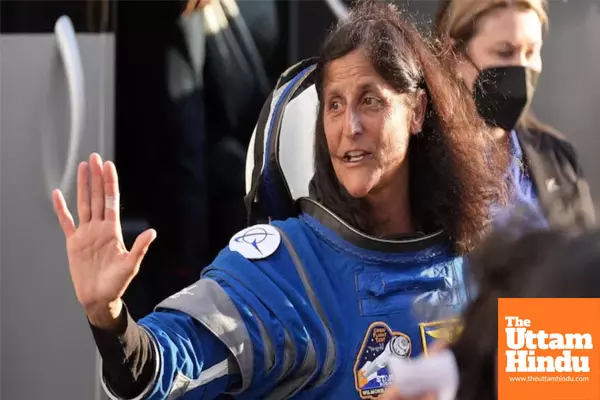
Sunita Williams returns to earth after 9 months in Space, faces potential health risks

New Delhi (The Uttam Hindu): Astronaut Sunita Williams, who has spent the last nine months in space, is set to return to Earth along with fellow astronauts Butch Wilmore and two other crew members. The four astronauts are scheduled to land off the coast of Florida on March 19 at around 3:27 AM aboard SpaceX's Dragon spacecraft led by CEO Elon Musk. While their return is a momentous occasion it also raises important concerns about the potential health effects of long-term space travel on the human body.
The absence of gravity in space causes significant physical changes to the body which can lead to challenges when astronauts return to Earth. Despite being provided with specialized diets and exercise routines to aid in recovery, astronauts often face health issues as they readjust to Earth's gravity.
1. Reduction in Red Blood Cells and Fatigue:
A study conducted by the University of Ottawa on 14 astronauts, including Britain's Tim Peck, found a significant decrease in the number of red blood cells during space missions. This was due to the destruction of red blood cells while in space. As a result astronauts often feel weak and tired when they return to Earth due to the loss of these cells.
2. Muscle and Bone Weakness:
In space the lack of gravity means muscles and bones are not engaged as they would be on Earth, leading to their weakening. The absence of weight-bearing activity causes bone density to decrease with an estimated 1% loss in bone density per month spent in space. As a result astronauts may face difficulties with walking, sitting and standing when they return to Earth.
3. Compromised Immune System and Cancer Risk:
Extended time in space can suppress the immune system, leaving astronauts more vulnerable to illnesses. Furthermore the increased radiation exposure in space raises the risk of cancer. The body’s inability to function properly in zero gravity, combined with radiation exposure, weakens the immune system, making astronauts more susceptible to health issues upon their return.
4. Reduced Sense of Smell:
Due to the upward flow of blood in space, astronauts often experience facial swelling, which can block the nose and impair their sense of smell. Since astronauts are typically in a horizontal position most of the time, blood circulation is directed toward the upper body, leading to swelling around the nose and a diminished sense of smell over time.
As Sunita Williams and her fellow astronauts prepare for their return to Earth, their health and recovery will be closely monitored with attention given to how their bodies adjust to Earth's gravity after spending such a long time in space.

